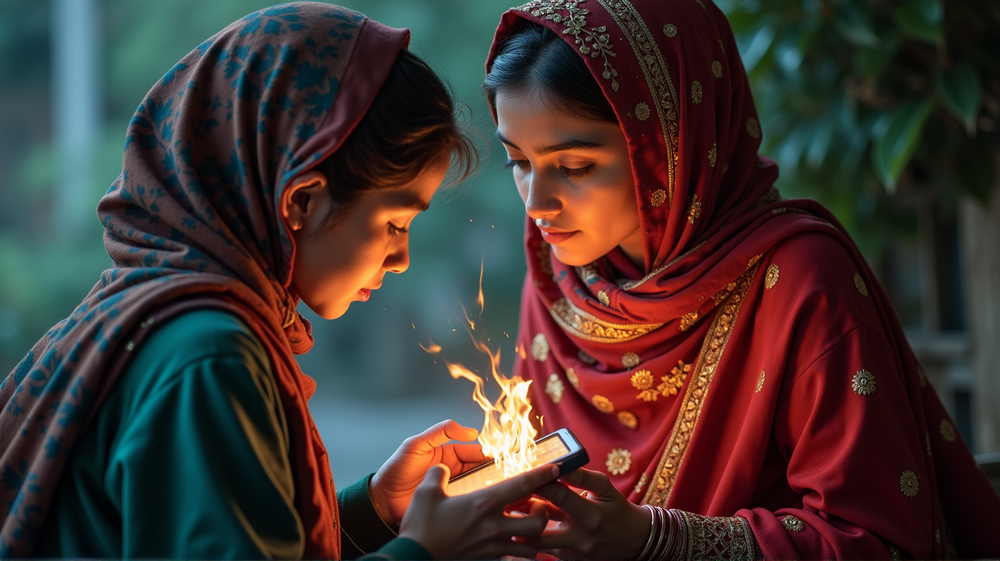Finding Love in a Digital Age: Muslim Americans' Quest for Marriage
In the vibrant, eclectic city of New York, Zohran Mamdani, a Muslim mayoral candidate, met his wife on the dating app Hinge. This revelation delights Nura Maznavi, more than a decade after meeting her husband online herself. For Muslim Americans like Mamdani and Maznavi, balancing faith with modern dating technology is becoming a normalized journey, filled with unique yet universal challenges.
Traditional Meets Contemporary
Muslim Matchmaker on Hulu shines a light on American Muslims’ diverse pathways to love, from traditional family introductions to serendipitous encounters. Yasmin Elhady, one of the matchmakers on the show, emphasizes a balanced depiction of joyful and complex aspects of love within the Muslim community.
Nura Maznavi, co-editor of collections focused on Muslim love stories, reflects on the variety of methods people find partners, considering cultural and familial influences alongside modern dating technology.
The Unique Challenges of Distance
For the Muslim singles community, potential partners are often widely dispersed. Hoda Abrahim, a matchmaker from the show, highlights that long-distance relationships and dating apps are sometimes necessary, showcasing the creativity Muslims use to forge connections despite geographic hurdles.
Compatibility Beyond Tradition
Abrahim and Elhady have developed a methodology known as the “Rules of Three” to guide Muslims through the complexity of relationships. Addressing compatibility, they consider the “halal-haram ratio,” to assess partners’ religious observance levels while navigating personal values and lifestyles.
The balance between religious devotion and personal freedom becomes a focal point for many, as individuals seek partners with similar values but openness to growth. A Pew Research Center study found parallels between Muslims and Christians in the importance of religion, further illustrating diverse paths to finding compatibility within the community.
Defining Relationships
The terminology around relationships sparks debate as well. For some, terms like “dating” carry loaded, negative associations while others prefer “courting” or “halal dating.” These distinctions are critical in aligning with religious beliefs and personal comfort lines.
Kaiser Aslam, Muslim chaplain at Rutgers University, suggests structured conversations with accountability measures to respect religious boundaries while fostering genuine understanding.
Embracing Cultural Diversity
Aslam notes the cultural richness within Muslim communities, yet highlights potential friction when differing traditions intersect in marriage. He stresses the importance of maintaining an openness to new cultural experiences as an enhancement to Muslim tradition rather than an opposition.
Tahirah Nailah Dean offers her personal experiences of overcoming cultural and racial biases in finding love, illustrating broader societal debates woven into the fabric of Muslim dating.
Bridging the Gap in Modern Love
The desire for genuine love transcends cultural and religious boundaries. Elhady from “Muslim Matchmaker” points out the universal struggle people face in modern dating environments. As technologies advance and cultures blend, Muslim Americans continuously redefine what love means in a multi-faceted world, crafting unique paths to marriage that feel authentic to tradition and inspired by modernity. According to Milwaukee Independent, these personal journeys reflect a broader tapestry of love and marriage challenges faced globally.




